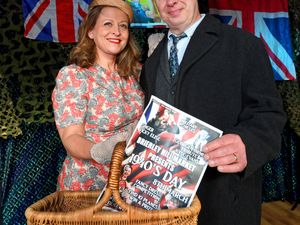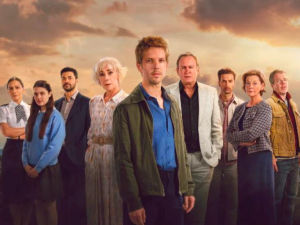Kirsty Bosley: What's really in a name when it comes to caring for creatures?
We humans have a weird relationship with the other creatures that we share this planet with.

Some say that they prefer animals to people (while eating hamburgers – because nameless cows obviously don't count. . .).
When a big cat is shot and killed for a trophy photo by a murderous leisure hunter, they're the first to shout up and demand justice for the slaughtered being.
The same happened this week when gorilla Harambe was shot dead at Cincinnati Zoo after a child fell into his enclosure. It's made all the worse, of course, by the fact that the world knows his name – Harambe.
Everything seems more emotive, worse, because of that. Harambe's life is valued above the bazillions of animals that are killed every day, because we have seen his face and learnt his name.
Of course, it's also because he's an endangered species. But how strange that we care more about the welfare of gorillas than, say, cows, just because there's less of them. Anyway, I digress.
As you may remember, last week I was gallivanting in North Cyprus, far away from the office phone and in climes more delightful than the one we enjoy here at home. As expected, I sat in the shade a lot reapplying factor 50. I read The Exorcist by William Peter Blatty and Psycho by Robert Bloch which both gave me the willies, but in a good way.
It was while sitting under the parasol that I met a dog. I say I met her, she came to sit next to me in the sun. She was just a sandy coloured stray dog – a mongrel of some sort, beautiful and ordinary.
I visually gave her the once over to see if she had any obvious, potentially infectious skin diseases. She was glossy and clean, and satisfied, I moved on to test two. To find out whether she was Cyprus's answer to Cujo (I read too much horror, see above), I put my feet up on the sun bed before asking aloud: "Hello, are you rabid?"
The dog looked up at me, sniffed the air, and resumed her place snuggling on the warm sand. I took that as a no, and reached my hand out to stroke her.
Her coat was beautiful, and she looked a picture of health, for a stray. There are loads of stray dogs and cats in Cyprus, all of whom seem to be enjoying life sticking their noses into the business of generous tourists. But it wasn't until she stood up and walked over to some other wandering beach-goers (I admit, I don't give the best cuddles in the Med) that I noticed something was wrong. She was shaking when she moved, but not with fear. When someone leaned down to stroke her, she allowed it, but yelped in pain as they reached under to tickle her tum.
On closer inspection, the little dog had a cut under her left front leg. It wasn't just a scratch either, it was a very deep one that seemed to reach her rib cage. She'd recently had puppies, it was clear to see, and though she was walking fine on her leg, the wound was clearly very much in need of stitches. My heart sank – who would look after this gorgeous dog here on the beach?
She seemed helpless.
As she lay in the sand, fast asleep, a troop of scuba divers (of which my boyfriend was one) emerged from the sea. The dog didn't move as they flip-flopped past her and loaded their tanks on to the truck.
The diving instructor, Asim, looked pretty stricken when he saw her.
He told us that he'd seen the dog around and taken her in to his diving centre when she'd given birth to her puppies, and that he'd made arrangements for them to go to good homes once they were old enough, before returning her to the beach opposite.
I was surprised by Asim's kindness.
He scooped the exhausted dog into his truck with the scuba gear and, though she was clearly scared, she seemed relieved to be with him.
He drove the very short distance across the road to the centre where he chained her up outside while he went to ring the vet. There were bowls of of biscuits and water dotted around, showing that having the occasional canine guest was commonplace in his establishment. The dog didn't touch any of them.
"What's her name?" I asked. No one knew – she just didn't have one.
Asim and Ismail – his fellow diver – had offered to take us back to our hotel, but would need to do so, they said, in a hurry. The vet was waiting for Asim to arrive with the dog, as it was now out of hours.
On the drive, Asim and Ismail spoke rather rapidly in Turkish. The volume got louder – it seemed they disagreed on something. After a while of sitting in the back of the car trying to keep the dog chilled out and comfortable, Ismail addressed us.
"We're not arguing," he assured me, though I wasn't convinced.
"We always talk like this!" he laughed.
"We have to buy a new fuse box for the office, but he's spending all of his money on vets!"
Asim shrugged and didn't say anything. She wasn't his dog, she was just a stray, but he didn't want to see her hurt. I asked how much it'd cost to have her cared for by the vet.
"I don't know," he answered, "but it doesn't matter." That was simply it. Caring for the dog came first for him, it was just natural. He dropped us off, and sped off towards the vet.
The kindness that he'd afforded the dog wasn't for back pats or 'well done me' kudos. It's one of the most base-level displays of love that I'd ever seen.
The scuba diver taught me a lesson in compassion. Animals shouldn't need to have a name, or to be endangered, to matter.




